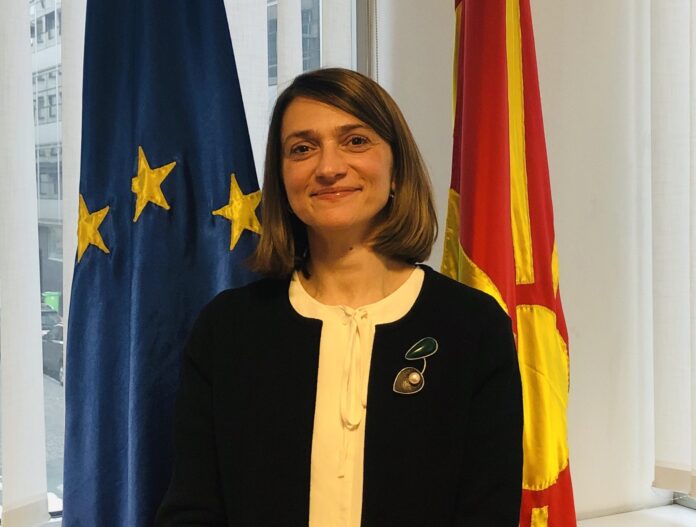
Agneza Popovska has recently presented her credentials to President Rumen Radev at the ceremony conducted at Dondukov 2. She was appointed as the ambassador of North Macedonia after an absence of two years in which North Macedonia didn’t have an ambassador in Bulgaria.
Popovska had led North Macedonia’s mission to the EU up to this point. Her birth year is 1971. Career diplomat Agneza Popovska. She attended St. Cyril and Methodius University in Skopje to study marketing and international economic relations. Agneza graduated from CERIS-ULB Diplomatic School in Brussels with a master’s degree in international politics. She is trilingual in French, English, and Croatian.
The neighbouring country didn’t have an ambassador in Bulgaria since 2020, after the term of Marjan Gjorchevhad ended. President of North Macedonia Stevo Pendarovski did not nominate Popovska as ambassador until September 9, 2022.
In January 1992, Bulgaria was the first nation to recognize North Macedonia as an independent country. Since 1992, Bulgaria has supported RNM in every manner, economically, politically and militarily, in many problematic moments for the country.
The decision had to be taken by Bulgaria on January 15, 1992, as that was when the European Community’s foreign ministers had to decide which former Yugoslav countries to recognize. It was anticipated that Slovenia and Croatia would receive recognition.
The Republic of Macedonia was admitted as the 181st full-fledged member of the international organization under the temporary connection of the Former Yugoslav Republic of Macedonia on April 8, 1993. Still, the state’s sovereign status was not acknowledged until then because of Greek opposition to a new state containing the name Macedonia.
